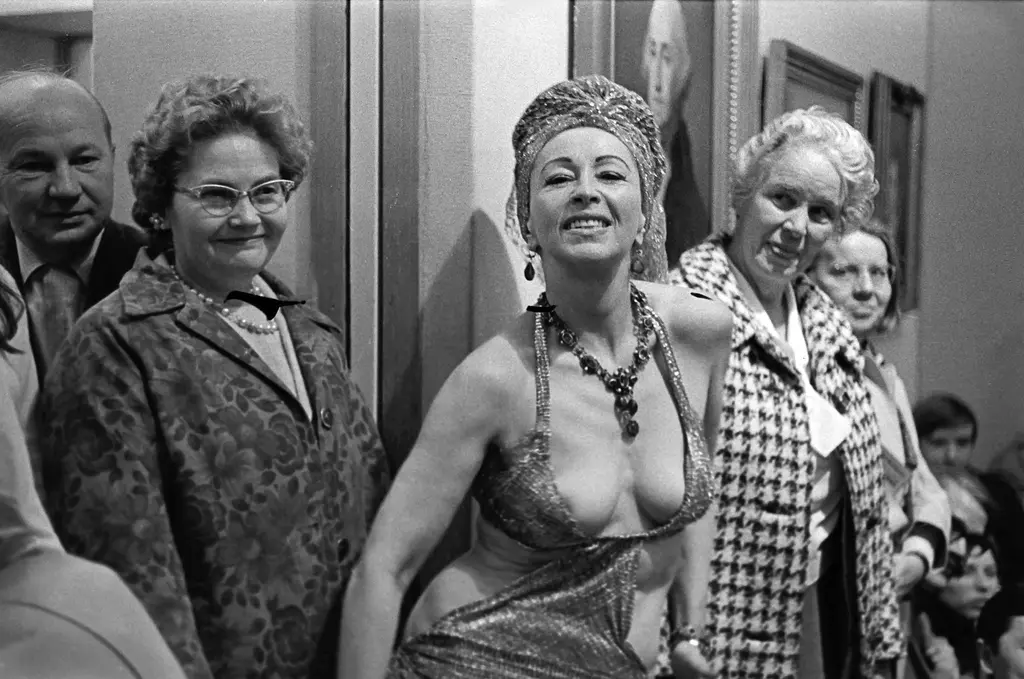Inside the disturbing world of Italy’s exorcists
- Text by Natalie Maria Wardle

Deliver Us is a disturbing new documentary on the reformed practice of exorcisms, following Sicily’s most in-demand exorcist – Father Cataldo Migliazzo, an 80-year-old priest based in Palermo.
The film revolves around a cast of several characters; from a woman housebound out of fear her demon will make her do depraved acts in public, to a crust punk addicted to drugs and disturbed by visions. Filmmaker Federica Di Giacomo explores their stories, as well as the psychology underlying the continued practice of exorcism in the contemporary world.
The practice is steadily gaining popularity within organised religion across the globe, in lieu of adequate healthcare for the mentally ill. While staying neutral in its narrative, Deliver Us asks the audience to examine the rise of this practice, and question how the church uses its influence. Is it just offering an artificial crutch for deep-faceted psychological problems? Is there a connection between the rise of exorcisms and the critical cuts to public services and mental health care? We caught up with Di Giacomo to hear her thoughts.
What drove you to pursue this idea for a documentary?
I was interested in these reports of possession, and the way they are growing as a result of an economic downturn. I was also really interested in the training of exorcising demons, and started going through the newspapers for courses on exorcisms. Because normally, it’s not something you read about in daily life.
How did you find the whole process of documenting these ‘exorcisms’? Was it traumatic?
No. It became a practice of liberation. It’s the kind of thing these priests do every day. It’s like a war of energy between the church and the underworld – one against another… Although there were a few possessions that were very violent in nature.
The increase in these ‘group demonic exorcisms’ is seen as a result of growing interest in Satanism and the occult. However, many of these possessions seem to signify an underlying psychological disorder in the victim. What is your view?
There are a lot of people that are suffering from something that could be understood psychologically – but perhaps there is something about our church which makes you get better because there is something spiritual about it. There is something charming about the lack of judgement, and listening not for money. The church is what the community needs, and offers a ritual for getting better. But of course, as it says in the documentary, it’s a mistake to go to an exorcist instead of a doctor.

Were there exorcisms you thought might be genuine? There appeared to be many moments of hysteria and even some doubting from certain priests of their validity.
The exorcisms are definitely very real. It’s a kind of energy – you can see it in their eyes. Sometimes it was really difficult not to share their suffering. Especially when you see the things that were happening to their bodies, the contorting from within their muscles.
Do you think this practice is providing a real service to Italy’s citizens, in place of doctors?
The priests are the first to tell them to see doctors, but they can’t turn them away. They can’t say no to listening. Some of these people still can’t be reasoned with, so they have to listen as part of the traditional practice. But like doctors, I saw some priests that were really very bad, and some that were very good. For that reason, there is a danger that we can miss the real underlying cause – therefore it can be a negative thing.
Do you think your documentary suggests it has gone too far in Italy?
Yes. It’s happening more, and not only Italy – but all over the world.
Interview has been edited for length and clarity.
DELIVER US (Liberami) is in UK cinemas on October 27th, and on DVD October 30th.
Enjoyed this article? Like Huck on Facebook or follow us on Twitter.
Latest on Huck

Maryam El Gardoum is breaking new shores for Morocco’s indigenous surfers
The Amazigh Atlantic — Through her groundbreaking career and popular surf school, the five-time Moroccan champion is helping women find their places in the waves.
Written by: Sam Haddad

Youth violence’s rise is deeply concerning, but mass hysteria doesn’t help
Safe — On Knife Crime Awareness Week, writer, podcaster and youth worker Ciaran Thapar reflects on the presence of violent content online, growing awareness about the need for action, and the two decades since Saul Dibb’s Bullet Boy.
Written by: Ciaran Thapar

Volcom teams up with Bob Mollema for the latest in its Featured Artist Series
True to This — The boardsports lifestyle brand will host an art show in Biarritz to celebrate the Dutch illustrators’ second capsule collection.
Written by: Huck

A visual trip through 100 years of New York’s LGBTQ+ spaces
Queer Happened Here — A new book from historian and writer Marc Zinaman maps scores of Manhattan’s queer venues and informal meeting places, documenting the city’s long LGBTQ+ history in the process.
Written by: Isaac Muk

Nostalgic photos of everyday life in ’70s San Francisco
A Fearless Eye — Having moved to the Bay Area in 1969, Barbara Ramos spent days wandering its streets, photographing its landscape and characters. In the process she captured a city in flux, as its burgeoning countercultural youth movement crossed with longtime residents.
Written by: Miss Rosen

Tony Njoku: ‘I wanted to see Black artists living my dream’
What Made Me — In this series, we ask artists and rebels about the forces and experiences that shaped who they are. Today, it’s avant-garde electronic and classical music hybridist Tony Njoku.
Written by: Tony Njoku

